Hiring the right fitness instructor can make or break your gym's reputation and member retention rates. The difference between a mediocre trainer and an exceptional one often comes down to asking the right questions during the interview process.
The most effective interview questions for fitness instructors focus on their coaching philosophy, practical experience, and ability to adapt programs for diverse client needs. You need to evaluate both their technical knowledge and interpersonal skills since they'll be working directly with members who have varying fitness levels and goals.
Your interview strategy should cover foundational topics like certifications and experience, then progress to more complex scenarios involving client motivation and program customization. This comprehensive approach helps you identify candidates who can deliver results while creating positive experiences for your members.
Essential Interview Questions For Fitness Instructors
Effective fitness instructor interview questions must evaluate technical exercise knowledge, communication abilities, and safety protocols. These three core areas determine whether candidates can deliver safe, effective training while building strong client relationships.
Assessing Exercise Knowledge and Techniques
Technical competency forms the foundation of effective fitness instruction. Ask candidates to demonstrate proper form for fundamental exercises like squats, deadlifts, and push-ups.
Request explanations of exercise modifications for different fitness levels. A qualified instructor should articulate how to scale movements for beginners while challenging advanced clients.
Test their understanding of anatomy and exercise physiology. Questions about muscle groups targeted during specific movements reveal depth of knowledge.
Key assessment questions include:
- Describe the proper setup and execution for a basic squmbat
- How would you modify a plank for someone with wrist pain?
- Explain which muscles are activated during a Romanian deadlift
Ask about program design principles. Candidates should understand progressive overload, periodization, and how to structure balanced workout routines.
Evaluate their knowledge of different training modalities. Fitness instructors should be familiar with strength training, cardiovascular exercise, flexibility work, and functional movement patterns.
Evaluating Communication and Interpersonal Skills
Strong communication skills separate good fitness trainers from exceptional ones. Assess how candidates explain complex exercise concepts in simple terms.
Role-play scenarios where they must motivate a discouraged client. Their response reveals emotional intelligence and coaching ability.
Test their active listening skills through mock consultations. Effective instructors must understand client goals, limitations, and concerns.
Communication assessment techniques:
- Have them teach you an exercise you've never done
- Present a scenario with an unmotivated client
- Ask how they handle client complaints or concerns
Evaluate their ability to provide constructive feedback. Fitness professionals must correct form without discouraging clients.
Assess their group management skills if applicable. Leading group fitness classes requires different communication strategies than one-on-one training.
Understanding of Safe Exercise Practices and Injury Prevention
Safety knowledge is non-negotiable in the fitness industry. Ask about contraindicated exercises for common conditions like lower back pain or knee injuries.
Test their understanding of proper warm-up and cool-down protocols. Candidates should explain the physiological importance of these components.
Evaluate their emergency response knowledge. Fitness instructors must recognize signs of overexertion and know when to stop exercise sessions.
Critical safety questions:
- What exercises would you avoid for someone with a herniated disc?
- How do you recognize the signs of heat exhaustion?
- Describe your protocol for a client experiencing chest pain during exercise
Ask about equipment safety and maintenance. Instructors should identify potential hazards and ensure proper equipment usage.
Assess their scope of practice understanding. Qualified candidates know when to refer clients to medical professionals or other specialists.
Advanced Topics And Specialized Questions
These advanced questions assess your technical expertise in program adaptation, nutritional knowledge, and commitment to staying current with industry developments. They reveal your ability to work with diverse populations and maintain professional standards.
Adapting Programs to Different Fitness Levels and Goals
You need to demonstrate your ability to modify workout plans for beginners, intermediate, and advanced clients. Explain how you assess current fitness levels through movement screens and fitness assessments.
Describe your approach to strength training progressions. Show how you scale exercises from bodyweight movements to advanced techniques using weights and specialized fitness equipment.
Key adaptation strategies include:
- Modifying intensity and duration
- Adjusting exercise complexity
- Accommodating physical limitations
- Scaling group fitness classes for mixed abilities
Address how you handle different fitness goals like weight loss, muscle building, or improving flexibility. Your personal training experience should include examples of customizing programs for various body composition targets.
Explain your method for tracking client progress. Discuss how you modify flexibility exercises and cardio machine protocols based on individual fitness journeys.
Knowledge of Nutrition and Wellness Principles
Your understanding of nutrition fundamentals is crucial for comprehensive client support. Explain the connection between balanced diet principles and fitness outcomes.
Describe how you educate clients about macronutrients and hydration. Address the relationship between nutrition timing and workout performance without overstepping your scope of practice.
Essential nutrition topics include:
- Pre and post-workout nutrition
- Hydration guidelines
- Basic meal planning concepts
- When to refer clients to registered dietitians
Discuss your wellness approach beyond exercise. Show how you incorporate stress management and recovery principles into your fitness classes.
Explain how nutrition impacts different fitness goals. Address questions about supplements and when you refer clients to qualified nutrition professionals.
Incorporating Fitness Trends and Professional Development
You must stay current with evolving fitness trends like HIIT, yoga, and Pilates integration. Explain how you evaluate new methodologies before incorporating them into your programs.
Describe your experience with wearable technology and fitness tracking devices. Show how you use data to motivate clients and adjust their health and fitness programs.
Professional development areas include:
- Continuing education requirements
- New certification pursuits
- Industry conference attendance
- Peer collaboration and mentoring
Address your familiarity with current group fitness formats. Discuss how you maintain your passion for fitness while expanding your skill set.
Explain your first aid and emergency response training. Show commitment to safety standards and liability management in your personal fitness instruction.
Describe how you adapt to changing client preferences and industry standards. Your professional growth demonstrates long-term value to potential employers.


